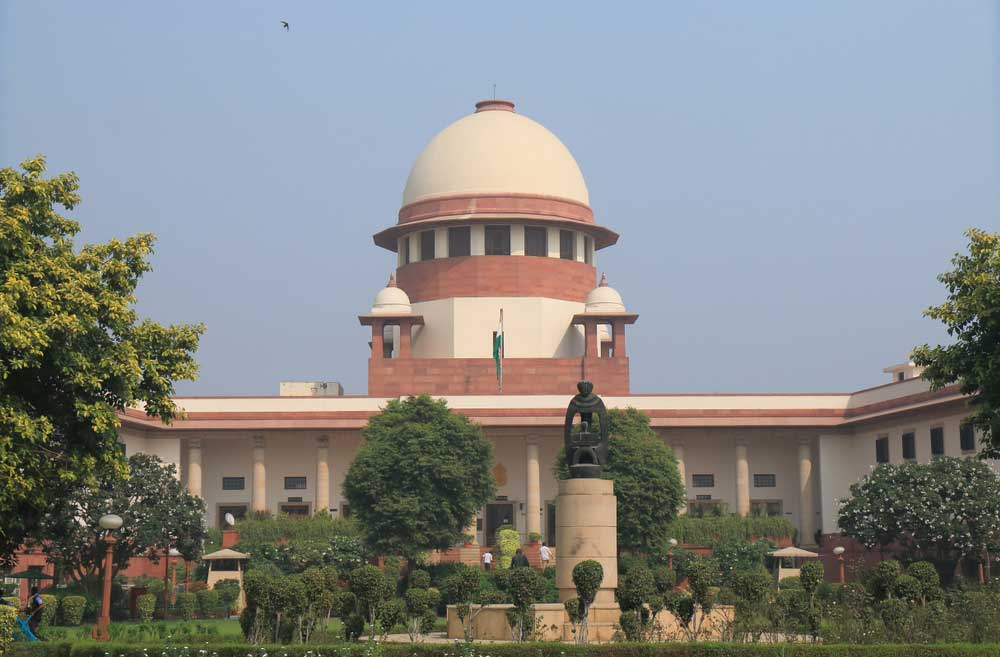The Supreme Court on Wednesday ruled that the Chief Justice of India was bound to disclose under the Right to Information (RTI) Act the final decisions of the collegium on appointments of judges and their assets.
“It is undebatable that the Supreme Court of India is a ‘public authority’…. The office of CJI or for that matter the judges is not separate from the SC, and is part and parcel of the SC as a body, authority and institution,” ruled a bench.
The final decisions taken by the collegium on the appointments will have to be disclosed under the RTI Act but the reasons and considerations adopted for arriving at the decisions need not be disclosed by the CJI, ruled the bench headed by Chief Justice of India Ranjan Gogoi.
The final decisions were being uploaded even before Wednesday’s verdict but that was being done voluntarily. Now, disclosures of the final decisions have become mandatory if an RTI application is filed.
“The file notings with respect to the elevation of judges do not merely contain information regarding the operation of the Supreme Court but also relate to the individual judges being considered for elevation. Thus, the information sought both relates to and has been supplied by a third party and has been treated as confidential by that third party.
“The procedure under Section 11 (exemption of confidential information) is applicable in regard to the information sought by the respondent and must be complied with,” the top court said in the judgment authored by Justice Sanjiv Khanna.
The collegium normally examines various inputs, including information from other judges, the Intelligence Bureau, and the central and state governments, besides members of the Bar to elevate a person as a judge of the Supreme Court or the high courts.
A five-judge constitution bench of Chief Justice Gogoi and Justices N.V. Ramana, Deepak Gupta, D.Y. Chandrachud and Khanna delivered the judgment. The court dismissed an appeal filed by the Supreme Court registry that challenged a 2010 judgment of Delhi High Court, which had taken the view that was upheld on Wednesday.
The assets of the CJI and other judges will also have to be made public if an RTI application is filed. In the law-making sphere, all candidates standing for elections will have to do so now on their own.
The apex court said judicial independence did not mean the insulation of judges from the rule of law. Hence the CJI is bound to disclose information with regard to the assets held by the judges.
But personal information will be disclosed only if public interest is established. An element of ambiguity has crept into what the court defined as “personal”.
“Medical records, treatment, choice of medicine, list of hospitals and doctors visited, findings recorded, including that of the family members, information relating to assets, liabilities, income tax returns, details of investments, lending and borrowing, etc. are personal information,” the judgment said.
The inclusion of assets in this sentence has caused confusion. Some lawyers said the reference to assets was confined to relatives, not the judges themselves.
The personal information is “entitled to protection from unwarranted invasion of privacy and conditional access is available when stipulation of larger public interest is satisfied”, the court said, adding that the list is “indicative and not exhaustive”.
This means that if someone files an application under the RTI Act and the central public information officer of the court decides on a case-by-case basis the disclosure is in public interest, the data will be revealed.
The bench added: “If one’s right to know is absolute, then the same may invade another’s right to privacy and breach confidentiality. And, therefore, the former right has to be harmonised with the need for personal privacy, confidentiality of information and effective governance.”
Writing a separate but concurring verdict, Justice Ramana said: “We may note that right to information should not be allowed to be used as a tool of surveillance to scuttle effective functioning of judiciary.”
The high court had dismissed an appeal of the Supreme Court registry, which had challenged an order passed by the Central Information Commission (CIC). On an application moved by prominent RTI activist Subhash Chandra Agarwal, the CIC had ruled that even the Supreme Court headed by the CJI on the administrative side was bound by the RTI Act.
On Wednesday, the Supreme Court bench said: “Judicial independence and accountability go hand in hand as accountability ensures, and is a facet of judicial independence. Further, while applying the proportionality test, the type and nature of the information is a relevant factor.
“Distinction must be drawn between the final opinion or resolutions passed by the collegium with regard to appointment/elevation and transfer of judges with observations and indicative reasons and the inputs/data or details which the collegium had examined.
“The rigour of public interest in divulging the input details, data and particulars of the candidate would be different from that of divulging and furnishing details of the output, of the decision.”
In terms of a 1997 resolution adopted at the Chief Justices conference, all the judges of the Supreme Court must disclose details of their assets to the CJI.
The bench said: “The Chief Justice of India in exercising his official functions in accordance with the 1997 resolution while holding asset information of other judges does not act for and on behalf of other judges of the Supreme Court. There exists no fiduciary relationship between them. The Chief Justice of India is not entrusted with the power to protect and further the interests of individual judges who disclose their assets.
“The information is required by the mandate of the resolution dated 7 May 1997 passed by all the then sitting judges of the Supreme Court and it cannot be said that such information is being provided in any personal capacity. The Chief Justice of India merely holds the information in accordance with the official functions and not in any fiduciary capacity.”










